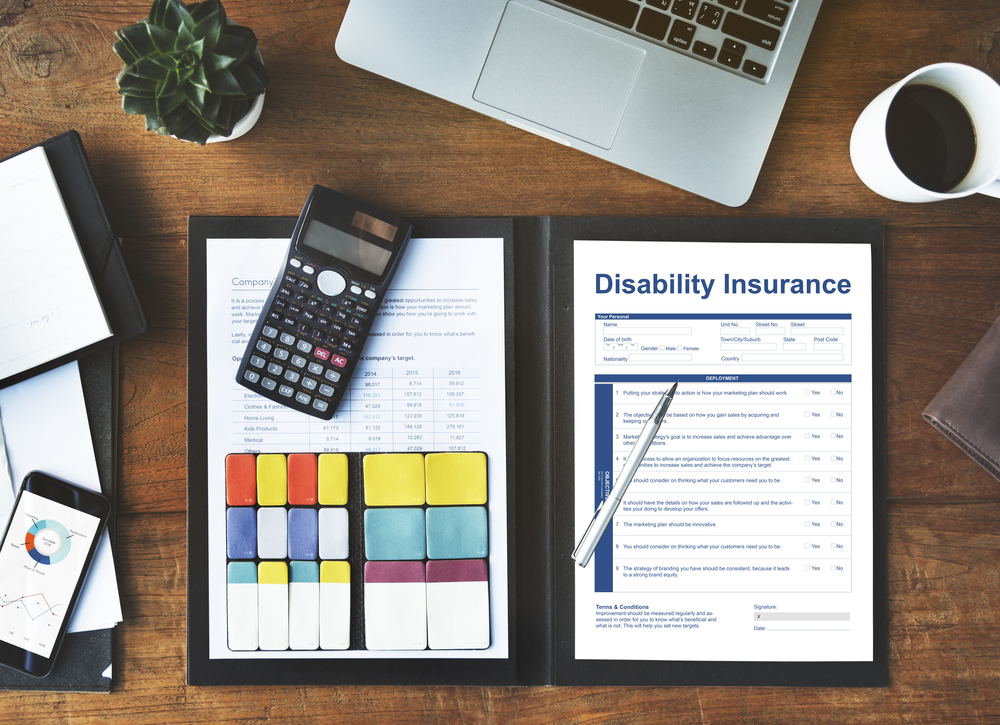News

Exploring Disability Insurance
Disability insurance is a type of insurance coverage that replaces a portion of your monthly income in the event you are unable to perform your work functions due to illness or injury. This insurance gives both yourself, and those who are dependent on you and your paycheck, a sense of financial security while you are out of work. Let’s explore disability insurance.
Who Qualifies for Disability Insurance and Why?
According to the Social Security Administration, about 1 in 4 adults, who are currently in their 20’s, will have some sort of disabling event in their life that will cause them to be out of work for at least 3 months before they hit retirement age. And, while most people think that disability insurance is most used by those with an injury due to an accident, the majority of claims (90%) come from medical illnesses. In fact, the most common claims are related to cancer, back pain, cardiovascular disease, injury, pregnancy, and digestive disorders.
Types of Disability Insurance
There are two types of disability insurance than an individual can enroll in and one that is administrated by the government through the Social Security Administration. First, there is short-term disability insurance. This type pays paycheck benefits for, as the name suggests, a short-term disability due to injury or illness. The time frame for these benefits is between 3-6 months and can cover between 40-60% of the participant’s income. Purchasing this type of insurance tends to be expensive and benefits usually begin about 14 days after the qualifying incident.
Long-term disability insurance pays between 60-80% of the participant’s income and typically lasts until they recover from the injury or illness or until a pre-determined number of years, for instance, until they are 65. Benefits for long-term disability insurance usually begin after a 90-day waiting time.
Social Security Disability Insurance (SSDI) is administered by the Social Security Administration (SSA). To be eligible for these benefits, the person must be approved through a strict list of qualifications from the SSA, which can be found here. It is difficult to qualify for SSDI benefits and the average monthly benefit in 2019 was $1,234.
How to Enroll in Disability Insurance
When looking to buy disability insurance, first, look to see if your employer offers employer-sponsored coverage at work. Many times, employers pay for all or a portion of the premiums. Some employers offer disability insurance for employees to buy at a discounted rate as a voluntary benefit as part of their benefits package. If you are part of a professional organization like a labor union or one for a specific profession, they may offer the ability to purchase disability insurance at a group rate. Also, you may purchase insurance through an insurance broker or directly from an insurance company.
COVID-19 and Disability Insurance
In some instances, disability insurance may cover the participant who is affected by the COVID-19 pandemic. Some benefits will cover if you are medically quarantined because of a positive COVID test or exposure to the coronavirus and you cannot complete your work function. This does not include state mandated “work from home orders.” Also, some COVID-19 survivors have lingering symptoms such as fatigue, headaches, and pain and these symptoms prevent them from being able to work. In these cases, short-term disability insurance may kick in. Check with your HR team or insurance broker to verify your coverage and eligibility.
Disability insurance provides the financial security needed by yourself and those who depend on you. In these uncertain times, having a backup plan in place will give you the confidence that an unforeseen illness or injury will not deplete your bank accounts while you get back on your feet. Check into disability insurance plans at your workplace, professional organization, or through a local broker. You and your family will be glad you did.
The information and content provided herein is for educational purposes only, and should not be considered legal, tax, investment, or financial advice, recommendation, or endorsement.